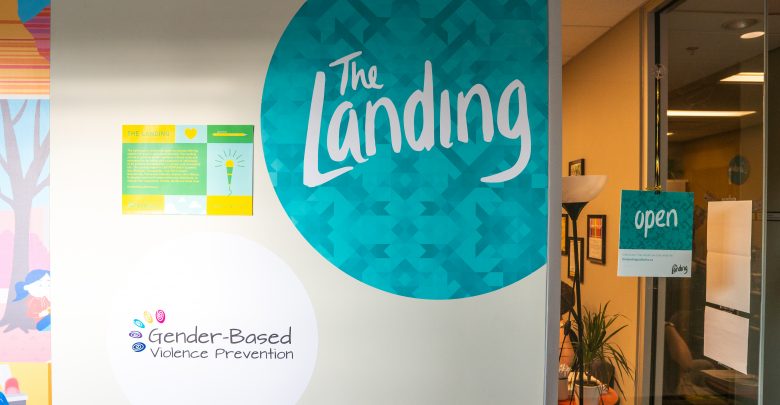The Landing to be integrated into the SU to resolve board-level leadership issues
A report from The Landing’s staff said they've been suffering from a number of governance problems, necessitating the need to merge with the SU
 Richard Bagan
Richard BaganFaced with a dysfunctional governance structure, the independent University of Alberta non-profit that provides support for gender and sexual diversity is looking to integrate itself into the Students’ Union.
First opened in 2014, The Landing was formed as service independent of the Students’ Union to support gender and sexual minorities. According to a report compiled by The Landing’s staff, while the services they provide such as drop-in hours and trans meet-ups are still being fulfilled, the organization is facing a number of governance-related problems that potentially jeopardize its ability to function.
Because of governance issues in The Landing, the service is looking to integrate itself within the Students’ Union. A motion to do so passed at Students’ Council on November 27. Once The Landing’s board of directors gives their approval in a later meeting, The Landing will become a Students’ Union service
Andre Bourgeois, vice-president (student life) of the Students’ Union and The Landing’s current board chair, said The Landing’s problems stem from the group’s board structure. When The Landing was initially founded, it was hoped the organization would have a fully functioning board, including a chair and a treasurer. This is similar to other organizations such as Alberta Public Interest Research Group or the Campus Food Bank.
However, Bourgeois said The Landing struggled to establish a fully functioning board. Some problems include being unable to find a treasurer for over a year, a lack of experienced board members, as well as negative interactions between the board and volunteers.
“Those kinds of tensions made it tough to find common ground between the people who were carrying out the day to day activities, with the direction that the volunteer board members wanted to see,” Bourgeois said.
Srosh Hassan, The Landing’s former board chair, said the problems faced by The Landing’s board were inherent to the board’s structure, and not the fault of any individual member.
“It’s not just one individual’s fault, but the board as a whole historically has never been successful at being a board,” she said. “When you don’t have the structures in place… then a lot of our functional capacity significantly decreases.”
Bourgeois added that once The Landing becomes a Students’ Union service, they will no longer need to maintain a board, and their staff and volunteers would be managed by the SU as a student service.
Legal issues needed to be resolved prior to integration
Currently, students pay a dedicated fee unit (DFU) of $1.57 per semester to The Landing, a fee that was approved in a 2015 referendum. Because the original referendum question stated that The Landing was to be independent of the Students’ Union, integrating it into the SU poses a legal problem.
In order to make integration legal, the motion passed in Students’ Council on November 27 will amend the fee directly so that The Landing no longer needs to be independent from the Students’ Union. Bourgeois said by doing so, the SU doesn’t need to do another referendum, though students will have to vote on continuing to pay The Landing’s DFU in 2020 as all DFUs need to be renewed every five years.
During the Students’ Council meeting, some members were concerned about amending the DFU without another vote from the student population, including Board of Governors representative Levi Flaman.
“I think that students, by referendum, created this and students, by referendum, should decide,” he said.
However, other members of council, including vice-president (academic) Akanksha Bhatnagar spoke in favour of amending the DFU and integrating The Landing into the Students’ Union, saying that The Landing’s needs were immediate.
“Students have told us [The Landing’s] circumstances have changed, and specifically LBGTQ2S+ students have outlined that they want this to happen,” she said. “So as council, it is our responsibility to represent those students.”




